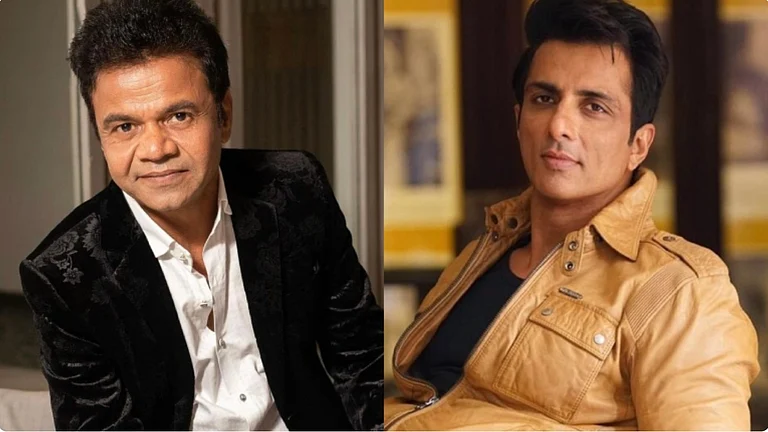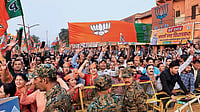Congress general secretary Digvijay Singh’s recent visit to Azamgarh should not have evoked much interest, but for his suggestion there that the party’s heir apparent, Rahul Gandhi, would follow suit. Neither the Union home ministry nor the prime minister’s office has taken kindly to the idea. PMO sources told Outlook that such a visit would send a wrong signal to those handling the Batla House encounter case in Delhi, in which all those facing investigations are from the eastern UP town of Azamgarh. This is especially so, said the sources, as M.C. Sharma, the policeman apparently shot dead by the alleged terrorists, has been honoured posthumously: a visit by Rahul to Azamgarh would reopen all the doubts raised at the time about the nature of the “encounter”.
Asked about the controversy, Digvijay Singh is circumspect. “I am not challenging the Batla House encounter inquiry or questioning the manner in which Sharma was killed,” he told Outlook. “What we want is a fair and speedy trial in a special court for the accused and a clubbing of the cases rather than being spread across the country.” He also said he had discussed the issue with Union law minister Veerappa Moily, and that he “favoured” his idea. Such a move, feels Digvijay, would go a long way in assuaging the sentiments of the Muslims of Azamgarh, who are upset that the town and terrorism have become synonymous in the public mind.
So, is Rahul Gandhi set to go to Azamgarh? “I haven’t discussed it with Rahul,” responds Digvijay. “I’ve discussed it with the Congress president (Sonia Gandhi) and she has said she will take it up with him.” Curiously, sources close to Rahul say Digvijay’s statement that he has only discussed the matter with the party president is “accurate”, and emphasise that all reports suggesting that Rahul is set to go to Azamgarh is “just speculation”.
But even though both the PMO—and the Union home ministry—are reluctant that Congressmen take up the Azamgarh cause, many in the party feel that Digvijay is on the right track, to reach out to the Muslims. An MP, who is also a key party functionary, endorses Digvijay’s stand and says it is not about one town in UP, but about the larger issue of internal security. “The Muslims in this country feel that the justice system doesn’t exist for them,” says this MP. “This leads to a radicalisation of the community and its attendant consequences, which have implications for internal security.” As for Digvijay’s role in it, this MP said, “Digvijayji never said the process should be interfered with or questioned the nhrc report. All he is pleading for is that Muslims must feel that they can get justice.” This is becoming increasingly difficult, he says, with the “communalisation” of the intelligence agencies.
No one can dispute that sentiment. But whatever the government feels, and regardless of whether Rahul visits Azamgarh, the question of making Muslims feel they are equal citizens will remain a challenge for any secular party.


























